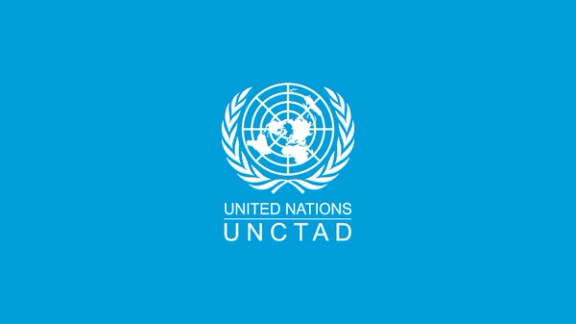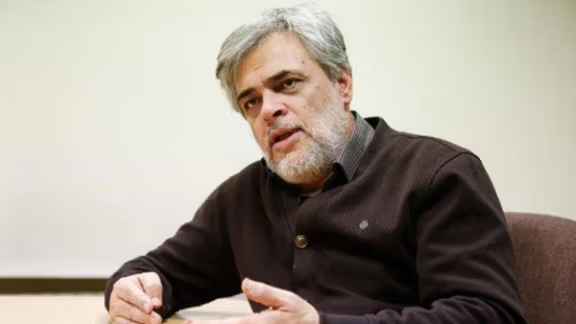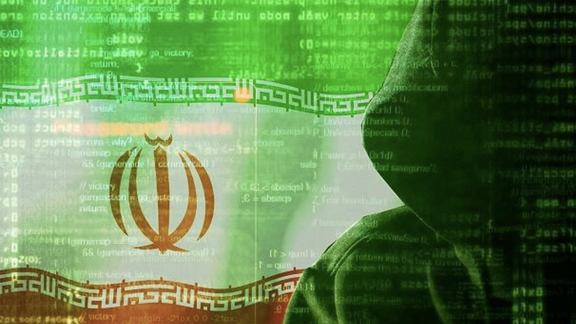Iran’s Attracted Only 0.1% Of Foreign Investment In 2022: UNCTAD

The United Nations Conference on Trade and Development says Iran's share of attracting foreign investment last year was only one tenth of a percent (one thousandth) of the world total.

The United Nations Conference on Trade and Development says Iran's share of attracting foreign investment last year was only one tenth of a percent (one thousandth) of the world total.
According to this report, published June 5, Iran has managed to attract only 1.5 billion dollars of foreign direct investment in 2022.
In 2017, and after the lifting of international sanctions, Iran attracted more than five billion dollars in foreign direct investments, but in 2018, this was halved, and after that, the annual amount fluctuated around 1.5 billion dollars.
The United States imposed oil export and banking sanction on Iran in 2018, making a series of demands including a stronger agreement to restrict Tehran's nuclear and missile programs. Thes sanctions have triggered an economic crisis, driving annual inflation to 70 percent and reducing the value of Iran's currency 12-fold.
Among Iran's neighboring countries, the UAE has attracted the most foreign investment.
In total, the Arab countries of the Persian Gulf region have attracted about 37 billion dollars in foreign direct investment in 2022, of which the UAE's share is 60%. Last year, Turkey attracted $13 billion.
The United States attracted the highest amount of foreign direct investment in the world with $285 billion, followed by China, Singapore and Hong Kong.
The US is also at the top in terms of investment in foreign countries with 269 billion dollars.
Figures by the UNCTAD show that a total of 1.3 trillion dollars of direct investment was made last year, which is 12% less than in 2021. The reason for the drop was the decrease in investments by advanced countries abroad.

The involvement of the FBI in looking into the conduct of US envoy for Iran Rob Malley could indicate a suspicion of criminal wrongdoing, Semafor has reported.
Iran International first reported June 29 that Malley has been absent for a considerable time, his security clearance has been suspended and he is under investigation related to his handling of classified documents. The Involvement of the Federal Bureau of Investigation was also reported, although until now no official details have been announced, except that Malley is on “unpaid leave.”
Semafor, however, confirmed Friday that the FBI is investigating Malley, according to a source briefed on the matter within the State Department.
The State Department has only confirmed that Malley is on leave and his deputy Abrams Paley is serving as acting special envoy for Iran. The department did not offer any more information to Semafor either.
Congressional leaders and lawmakers however have been demanding explanations from the Biden administration, since they were never informed about Malley’s long absence.
Soon after the news broke about Malley’s status, the chairman of the House Foreign Affairs Committee Rep. Michael McCaul demanded answers referring to reports that Malley was placed on unpaid leave the same day that Iran International reported about the investigation.
“These reports raise serious concerns both regarding Malley’s conduct and whether the State Department misled Congress and the American public,” McCaul wrote to Secretary of State Antony Blinken.
Semafor quoted a senior US official as saying that “government agencies would not suspend a clearance independently unless a law enforcement agency has an open investigation.” It also said that although details still remain unclear, “But the involvement of the FBI is significant in that it indicates there could be suspicion of criminal wrongdoing.”
Senator Bill Hagerty (R-TN) also tweeted on the matter June 30, raising a series of questions. “When did the investigation that led to the suspension of Malley’s clearance begin?”, asked Sen Hagerty, and added, “When were Secretary of State Antony Blinken and President Joe Biden informed of it?”
The senator further asked, “Why did they allow Malley to continue in his diplomatic role while under investigation?” He went further questioning Malley’s appointment in the first place, mentioning that his “contacts with Hamas and other extremist groups raised concern in the past.”
After Fox News also reported on Malley’s situation, Sen. Hagerty tweeted June 6, “This scrutiny of the Biden Admin is warranted given Iran's history of supporting terrorism & pursuing nuclear ambitions. The Admin must take a firm stance in dealing with this regime, & anyone mishandling classified information must be held accountable.”
Many Iranian American activists, who always saw Malley as biased in favor of the Iranian regime, are also asking questions.
Reza Behrouz, a neurologist and professor in Texas tweeted, “We as members of the Iranian American community who initially cautioned about his [Malley’s] appointment…deserve to know what is at stake here. To what extent his egregious conduct adversely affected the national uprising in Iran?”
Meanwhile, other officials are continuing talks with Iran as the administration
Academic and former hostage in Iran Xiyue Wang also tweeted, “In light of Rob Malley’s mishandling of classified information, Biden should suspend all negotiations with Iran at least until the investigation is concluded.”

Nazila Maaroufian, a journalist and student at Allameh Tabatabai University in Tehran, was arrested on Saturday following a summons to the Prosecutor's Office at Evin prison.
Her arrest occurred after security agents from the intelligence ministry raided her home last week and ordered her to appear at the prosecutor's office.
In a tweet, she shared the details of the government agents' invasion of her home to conduct a search and confiscate her personal belongings. She emphasized that despite Iranian citizens being deprived of safety even within their own homes, they should persevere and not surrender.
Maaroufian was previously employed by the moderate Iranian news website Rouydad 24, which had been a reliable source of news about developments in Iran.
However, in March, the Iranian regime blocked access to the website after it published an interview with Amjad Amini, the father of Mahsa (Zina) Amini.
Mahsa Amini, a Kurdish Iranian woman, died in the custody of the "hijab police," sparking the current wave of anti-regime protests, which are the largest the Islamic Republic has faced since its establishment in 1979.
Nazila Maroufian and Marzieh Amiri, journalists from the outlet, were imprisoned due to the interview and their reports on the protests.
After 72 days of detention, Maroufian was temporarily released from Gharchak Varamin prison on a bail of six billion rials. However, she was later sentenced to two years in prison on charges of "propaganda and publication of lies."

As rivalry between conservative groups in Iran is getting more overt ahead of the March 2024 parliamentary elections, name calling and accusations become public.
A moderate conservative figure has branded the members of ultraconservative party Paydari [steadfastness] “political businessmen” out to secure power and make money.
Mohammad Mohajeri, a former hardline conservative figure turned “moderate” who was once one of the editors of hardline daily Kushan, says the ideological games being played by Paydari are nothing but moves to secure the interests of ultraconservative politicians.
Mohajeri said in an interview widely covered by the Iranian press this week that moves to expand power and influence have spread to the state television, where leading Paydari member Vahid Jalili, a brother of former nuclear negotiator and Khamenei confidant Saeed Jalili, has been placing likeminded individuals on key posts ahead of the elections.
Exerting influence on the state TV is key to electioneering in Iran because it is the only broadcaster in the country. It targets regime supporters and promotes Supreme Leader Ali Khamenei’s hardline political views. However, it has lost its reach and influence among the middle class to a great extent after the disputed presidential election in 2009.
Mohajeri charged that state TV chief Payman Jebelli has put the national broadcaster totally at the disposal of hardliners by appointing Jalili as his deputy. He said that the television with its exclusive right to broadcasting in Iran has already been promoting the electoral agenda of the hardliners and paving the way for a landslide victory for Paydari.

However, he pointed out that polls conducted in Iran show that the state TV has lost three quarters of its viewership in a decade and the ideological management is hurting its popularity even more.
Mohajeri pointed out that there are four major groups of conservatives in the Iranian political landscape: Paydari, the neo-cons around Majles Speaker Mohammad Bagher Ghalibaf, traditional conservatives close to former Majles Speaker Gholamreza Ali Haddad Adel, and another group that calls itself “moderate and rational.” From among these four groups, Paydari currently has the upper hand among regime insiders.
Mohajeri had said in another interview last week that “Paydari is President Ebrahim Raisi’s strategic ally,” and are most likely to give all their support to Raisi and the candidates he picks for the Majles election in March. He added that Paydari is working on a plan to minimize the turnout next March so that mostly regime supporters come out to vote and most of them cast their ballots for its candidates.
Furthermore, Gholamreza Ali Jafarzadeh Imanabadi, a former lawmaker from Rasht in northern Iran, revealed that Paydari has been reaching out to ultraconservative figures who they believe can secure votes, encouraging them to run as representatives of the party in the upcoming elections.
Reformist politician Mohammad Reza Javadi Hesar told Etemad Online on Wednesday that Paydari has been exploiting state television in a manner that has even frustrated other conservatives. He may have been referring to a report on the website of the IRGC-linked Tasnim News Agency, which stated that Jalili's actions at state TV have deeply annoyed individuals devoted to the ideology of the Islamic Republic.
In response to criticism, Jalili argued that he possesses the appropriate background for the position of deputy director at state TV, stating that some of his predecessors came from the IRGC and were experts on missiles rather than having a background in a cultural organization such as the Art Bureau of the Islamic Propagation Organization, where he previously worked before being appointed as deputy state TV director.

A state-sponsored Iranian hacker group recently employed a new infection chain to target a nuclear security expert at a US think tank.
Charming Kitten, also known as TA453, APT42, Mint Sandstorm, and Yellow Garuda earlier targeted high-value accounts in government, academia, NGOs, national security, and journalism.
As part of their recent operation, the IRGC-linked group used a benign email to begin a relationship with their target. Then they sent a follow-up email containing a malicious macro that directed the target to a Dropbox URL.
“Using a .rar and LNK file to deploy malware differs from TA453’s typical infection chain of using VBA macros or remote template injection. The LNK enclosed in the RAR used PowerShell to download additional stages from a cloud hosting provider,” a new analysis by Proofpoint says.
“The use of Google Scripts, Dropbox, and CleverApps demonstrates that TA453 continues to subscribe to a multi-cloud approach in its efforts to likely minimize disruptions from threat hunters. (...) Regardless of the infection method, TA453 continues to deploy modular backdoors in an effort to collect intelligence from highly targeted individuals,” Proofpoint said.
In April, Microsoft warned that hackers linked to Iran are targeting critical US infrastructure including transport, energy and ports. A report by Microsoft Threat Intelligence revealed the threat from the Iranian hackers, known as "Mint Sandstorm".
Initially engaged in reconnaissance, the subgroup eventually began attacking critical infrastructure organizations in the United States in 2022. In November 2021, the United States Justice Department indicted two Iranians, Mohammad Hosein Musa Kazemi and Sajjad Kashian, who were employed by Emennet Pasargad. During the 2020 presidential election, they allegedly conducted a cyber campaign "to intimidate and influence American voters".

The director general of the International Atomic Energy Agency (IAEA) has expressed dissatisfaction with Iran's level of cooperation with the nuclear watchdog.
Rafael Grossi made these remarks during a press conference after visiting the Fukushima Nuclear Power Station in Japan on Friday.
"The situation is difficult. Efforts related to the JCPOA [Joint Comprehensive Plan of Action] have currently stalled, so there is not much progress on that front. Cooperation with Iran is ongoing, but it is not at the level that I would prefer. I have conveyed this to my Iranian counterparts. We have several unresolved issues," Grossi stated.
He further mentioned that he had visited Iran in March, where he agreed on a joint statement and certain necessary steps to resolve existing disagreements. However, the implementation of this agreement has been "exceptionally slow."
"I am making efforts to expedite matters in order to prevent tensions from resurfacing in that part of the world," Grossi emphasized.
In June, Iran announced that it had reinstalled 10 cameras of the UN nuclear watchdog at one of its installations. These cameras had been removed last year when the agency's board of governors censured Iran for its lack of cooperation.
However, an Iranian lawmaker stated last week that reinstalling IAEA monitoring systems at the Esfahan (Isfahan) nuclear site went beyond the Safeguards Agreement and contradicted the "strategic action" law ratified by the parliament in December 2020.
Ali Khezrian was referring to a law, which imposed restrictions on nuclear monitoring by the IAEA. Since its passage, Iran has further limited international monitoring and inspections, adding complexity to the process of renewing the JCPOA.